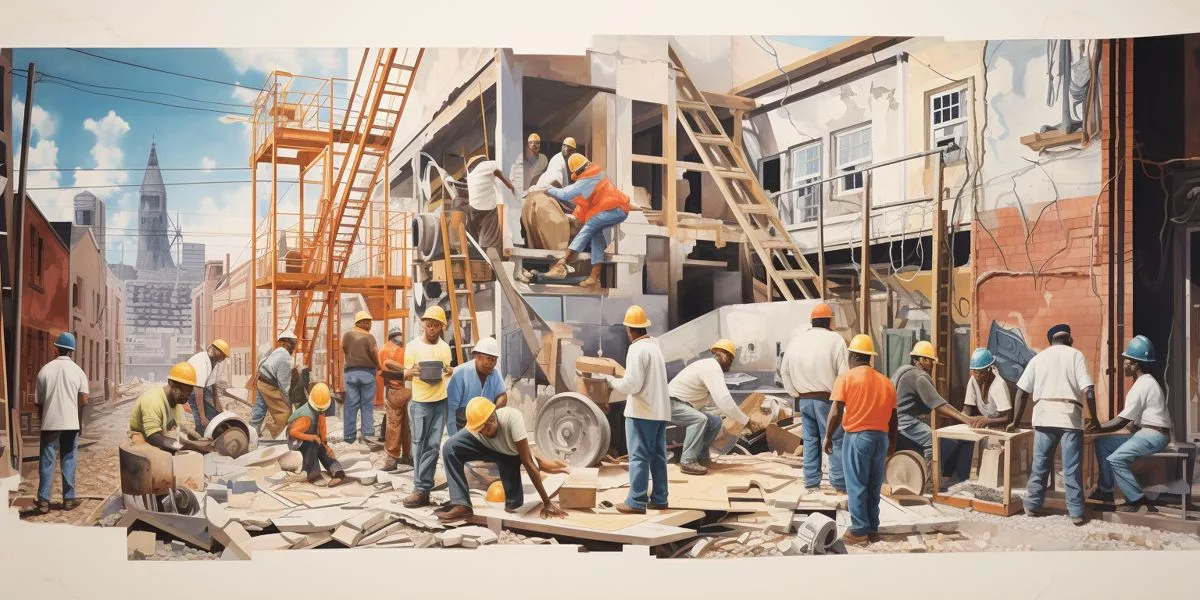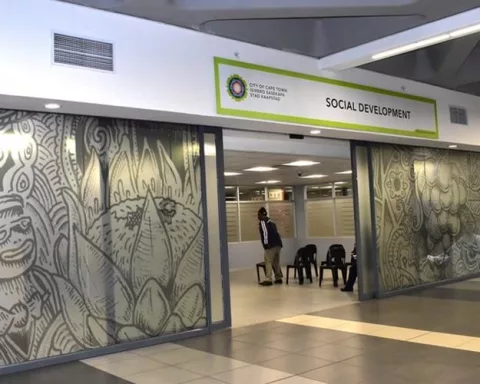The City of Cape Town has issued an eviction order to unauthorised inhabitants of Three Anchor Bay, offering transitional housing assistance before the deadline of January 31. The City is also committed to keeping public areas orderly and has proposed an investment of R230 million to upgrade Safe Space shelters and expand bed capacity at the Haven Night Shelter. The City’s multifaceted approach to social reintegration includes mental health, medical, and substance abuse treatment referrals and job opportunities, with a focus on fostering long-term solutions through social development partnerships.
Unauthorised inhabitants of Three Anchor Bay have been given until January 31 to leave the premises, with the City offering aid in the form of transitional housing. The Sheriff has the power to evict any remaining illegal inhabitants after the deadline. The City is dedicated to keeping public areas intact and orderly, and initiatives include mental health, medical, and substance abuse treatment referrals. The City has also proposed an investment of R230 million over the next three years to upgrade its Safe Space shelters, planning to increase their capacity and expand the bed capacity at the CBD’s Haven Night Shelter.
The picturesque community of Three Anchor Bay in Cape Town has been swept up in a dispute over the local tennis club and its nearby green space. The Western Cape High Court has authorized a final eviction order against the unlawful incursion of these publicly-owned areas belonging to the City. This decisive move, sparked by the City of Cape Town, also includes a permanent injunction to curtail any further illegal inhabitation of similar spaces.
Eviction Order and Assistance Offered
The unauthorised inhabitants have been given a deadline of January 31 to leave the premises. Nonetheless, the city is not just expelling these people, but offering aid in the form of transitional housing. Those in need can find refuge at the City’s [Safe Space shelters](https://capetown.today/a-ray-of-hope-expanding-safe-space-homeless-shelters-in-cape-town/). Post-deadline, the Sheriff has the power to evict any remaining illegal inhabitants, reflecting the City’s dedication to keeping public areas intact and orderly.
This eviction notice isn’t a standalone event. It’s the culmination of the City’s constant endeavors to offer social care and support to those who had claimed the tennis courts as their homes. These actions cover a range of services, from providing access to night shelters managed by Non-Governmental Organizations (NGOs) to operating Safe Spaces and facilitating programs aimed at offering sustainable exit strategies from street life.
Multifaceted Approach to Social Reintegration
The initiatives put forth by the City offer a comprehensive solution to social reintegration. The focus is not solely on housing, but also involves family reunification, personal growth, and job opportunities. Mental health, medical, and substance abuse treatment referrals are also part of these initiatives, indicating an understanding that homelessness is a complex issue.
The eviction at Three Anchor Bay is one facet of the City’s wider strategy. As it awaits a High Court verdict on similar eviction orders for multiple homeless camps throughout the Central Business District (CBD), places like Buitengracht Street and Helen Suzman Boulevard are under review. Mayor Geordin Hill-Lewis highlighted the importance of preserving public spaces for everyone, especially in prime economic and tourism hotspots such as the CBD and the Atlantic Seaboard.
City’s Investment in Safe Space Shelters
The Mayor made it clear however, that resorting to legal action was the final option when assistance was repeatedly refused. The City’s plan to revamp public spaces coincides with its ongoing efforts to offer social support and shelter. To underscore this commitment, the City has proposed an investment of R230 million over the next three years to upgrade its Safe Space shelters. These facilities currently providing 700 beds across the CBD and Bellville, are planning to increase their capacity. A new 300-bed Safe Space in Green Point is slated to open next year, offering additional relief for those in need.
The City has also expanded the bed capacity at the CBD’s Haven Night Shelter by 63%, from 96 to 156 beds. This expansion enables NGOs to provide 300 extra temporary beds during the winter months, further showcasing the City’s intention to provide tangible solutions to homelessness.
Fostering Long-Term Solutions through Social Development
In addition to infrastructure investments, the City has set aside a social development budget of R94.75 million for the 23/24 financial year to address homelessness. This budget consists of a considerable grant-in-aid of R75 million for NGOs working with the homeless. With such initiatives, the City is not only catering to immediate needs but is also facilitating long-term solutions by partnering with NGOs operating at grassroots level.
One of the City’s most triumphant programs is the Matrix substance abuse treatment program. With an impressive 80% success rate, this program is addressing one of the main reasons people end up on the streets, adding another dimension to the City’s holistic approach towards homelessness.
Over the past year, the City has reportedly aided close to 3,500 individuals with shelter placements, social service referrals, family reunifications, and more than 880 short-term job opportunities via the Expanded Public Works Programme. The Safe Space model, with its job assistance, skills training, and work placement opportunities, offers not only crucial shelter but also a pathway towards sustainable self-reliance.
In conclusion, the eviction at the Three Anchor Bay Tennis Club and its neighboring green area is a representation of the City’s broader strategy to address homelessness. By combining enforcement with assistance, the City is striving to ensure that public spaces can be enjoyed by all, whilst also extending help to those who need it most. Their initiatives reveal a dedication to not just mitigating the symptoms of homelessness, but tackling its root causes in a comprehensive and compassionate fashion.
What is the eviction order for unauthorised inhabitants of Three Anchor Bay?
The Western Cape High Court has authorised a final eviction order against the unlawful incursion of publicly-owned areas in Three Anchor Bay belonging to the City of Cape Town. The unauthorised inhabitants have been given a deadline of January 31 to leave the premises, with the Sheriff having the power to evict any remaining illegal inhabitants after the deadline.
What assistance is being offered to those affected by the eviction order?
The City of Cape Town is offering transitional housing assistance to those affected by the eviction order. Those in need can find refuge at the City’s Safe Space shelters. The City is committed to keeping public areas intact and orderly and is striving to ensure that public spaces can be enjoyed by all while also extending help to those who need it most.
What initiatives are being put forth by the City to address homelessness?
The City of Cape Town has proposed an investment of R230 million over the next three years to upgrade its Safe Space shelters, planning to increase their capacity and expand the bed capacity at the CBD’s Haven Night Shelter. The City’s multifaceted approach to social reintegration includes mental health, medical, and substance abuse treatment referrals and job opportunities, with a focus on fostering long-term solutions through social development partnerships. Additionally, the City has set aside a social development budget of R94.75 million for the 23/24 financial year to address homelessness.
What are the Safe Space shelters?
The Safe Space shelters are facilities operated by the City of Cape Town that provide transitional housing and other services to those affected by homelessness. The City has proposed an investment of R230 million over the next three years to upgrade its Safe Space shelters, planning to increase their capacity and expand the bed capacity at the CBD’s Haven Night Shelter. A new 300-bed Safe Space in Green Point is also slated to open next year, offering additional relief for those in need.
How is the City partnering with NGOs to address homelessness?
The City of Cape Town has allocated a social development budget of R94.75 million for the 23/24 financial year to address homelessness, including a grant-in-aid of R75 million for NGOs working with the homeless. The City is partnering with NGOs operating at grassroots level to facilitate long-term solutions to homelessness. The Expanded Public Works Programme also offers short-term job opportunities to those affected by homelessness.
What is the Matrix substance abuse treatment program?
The Matrix substance abuse treatment program is one of the City of Cape Town’s most successful programs towards addressing homelessness. With an impressive 80% success rate, this program is addressing one of the main reasons people end up on the streets. The City’s initiatives towards addressing homelessness have a comprehensive approach that involves mental health, medical, and substance abuse treatment referrals in addition to housing and job opportunities.












